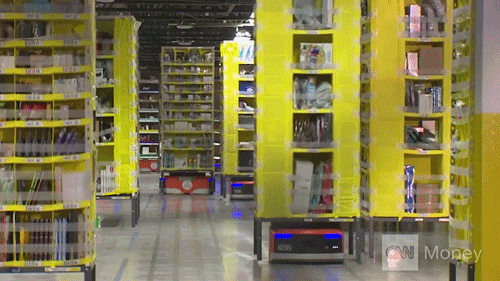An uncommonly thoughtful technology entrepreneur, Vivek Wadhwa doesn’t focus solely on the benefits of disruption but its costs as well. He believes we’re headed for a jobless future and has debated the point with Marc Andreessen, who thinks such worries are so much needless hand-wringing.
Here’s the most important distinction: If time proves Wadhwa wrong, his due diligence in the matter will not have hurt anyone. But if Andreessen is incorrect, his carefree manner will seem particularly ugly.
No one need suggest we inhibit progress, but we better have political solutions ready should entrenched technological unemployment become the new normal. Somehow we’ll have to work our way through the dissonance of a largely free-market economy meeting a highly automated one.
In a new Washington Post piece on the topic, Wadhwa considers some solutions, including the Carlos Slim idea of a three-day workweek and the oft-suggested universal basic income. The opening:
“There are more net jobs in the world today than ever before, after hundreds of years of technological innovation and hundreds of years of people predicting the death of work. The logic on this topic is crystal clear. Because of that, the contrary view is necessarily religious in nature, and, as we all know, there’s no point in arguing about religion.”
These are the words of tech mogul Marc Andreessen, in an e-mail exchange with me on the effect of advancing technologies on employment. Andreessen steadfastly believes that the same exponential curve that is enabling creation of an era of abundance will create new jobs faster and more broadly than before, and calls my assertions that we are heading into a jobless future a luddite fallacy.
I wish he were right, but he isn’t. And it isn’t a religious debate; it’s a matter of public policy and preparedness. With the technology advances that are presently on the horizon, not only low-skilled jobs are at risk; so are the jobs of knowledge workers. Too much is happening too fast. It will shake up entire industries and eliminate professions. Some new jobs will surely be created, but they will be few. And we won’t be able to retrain the people who lose their jobs, because, as I said to Andreessen, you can train an Andreessen to drive a cab, but you can’t retrain a laid-off cab driver to become an Andreessen. The jobs that will be created will require very specialized skills and higher levels of education — which most people don’t have.
I am optimistic about the future and know that technology will provide society with many benefits. I also realize that millions will face permanent unemployment.•
Tags: Vivek Wadhwa

